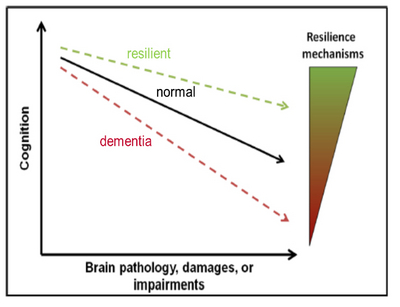Tüscher Lab
Research Publications BiographyNeurocognitive mechanisms of mental resilience

Within our research area “Healthy ageing, neurodegeneration and neuropsychiatry”, led by Kristina Endres, Katharina Geschke/Isabel Heinrich and Oliver Tüscher, we use a broad methodological spectrum spanning from preclinical lab work to clinical studies to investigate the mechanisms of healthy ageing. Based on these findings, we aim to develop preventive, disease-modifying and therapeutic interventions. Our interdisciplinary research group includes biologists, chemists, psychologists, physicians and computer scientists, enabling us to implement research from molecular mechanisms to clinical use. The results of our investigations are evaluated using a translational cycle, with the ultimate goal of fostering an ageing process that is as cognitively healthy and free of ailments as possible.
We work in close cooperation with the Centre for Healthy Ageing (CHA) to identify and investigate biomarkers and mechanisms of (healthy) ageing in neuronal tissues. Intervention strategies are tested on animal models ranging from C. elegans to mice. Using neuroimaging techniques, we translate this research to the human brain and study neural network mechanisms of resilient ageing – a conceptual framework we recently developed to explicitly understand and target those biological mechanisms which protect the brain and body against functional loss caused by ageing and ageing-related diseases. Studies in our lab include:
Resilient ageing: ReALizing healthy body & brain ageing (ReALity HBBA) (Tüscher)
We are investigating the mechanism(s) conveying resilience to body and brain ageing by comprehensively phenotyping the (epi)genomic, proteomic, cellular-immunologic and cardiovascular phenotypic levels of participants in the AgeGain study (with the Bopp Lab, FZI/UMC and the Wild Lab, CTH/UMC & IMB). We will also uncover genetic and cellular senescence mechanisms by comparing resilient and non-resilient participants (with the Baumann Lab, JGU/IMB).

Gut-brain-axis in ageing (Endres, Tüscher)
Recent studies suggest that certain bacterial commensals may cause accelerated or diseased ageing. We study the gastrointestinal system in mouse models of Alzheimer’s disease and accelerated ageing (with the Baumann and Schick labs (IMB) through the CHA and SHARP initiative), to identify pathways that can serve as new therapeutic treatment options to ameliorate cognitive decline in ageing.
Signatures of vulnerability in the ageing brain (Endres, Tüscher)
Certain brain regions maintain function throughout ageing and even diseased ageing, while others are highly vulnerable. Together with the Dormann (JGU/IMB), Gerber (UMC) and Bopp (UMC) labs, we analyse how different brain areas and cellular subpopulations in the brain are affected by normal and accelerated ageing. With the Krämer-Albers lab, we also analyse neuronal extracellular vesicles (EVs) in humans to unravel novel biomarkers of cognitively healthy ageing.
Anti-brain-ageing therapeutics (Endres, Geschke/Heinrich, Tüscher)
We are evaluating the use of sarcopenia (the progressive loss of strength and functionality of skeletal muscles) as an external measure of healthy ageing in rodent models and humans, and are using it to assess the efficacy of therapeutic interventions for Alzheimer’s disease and preventing cognitive decline in normal and accelerated ageing.
